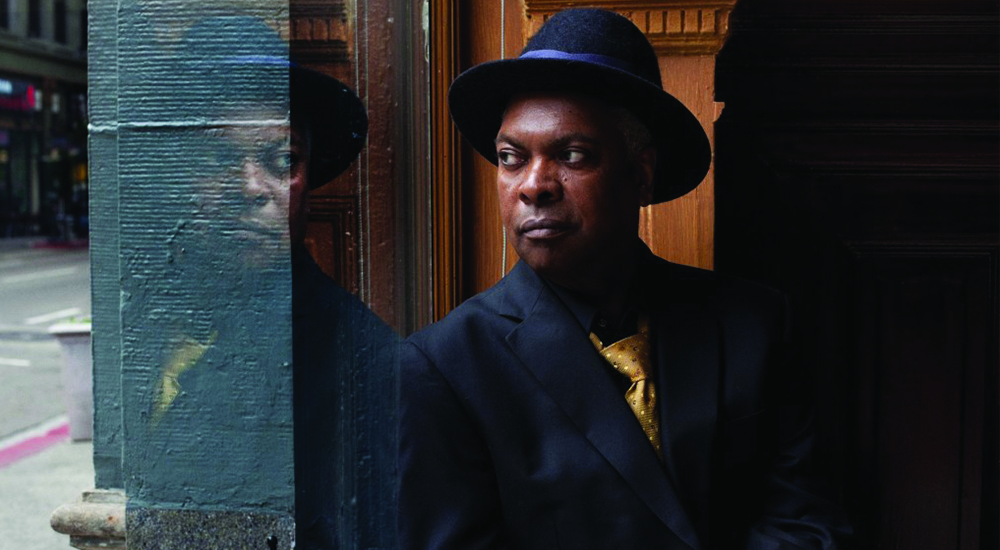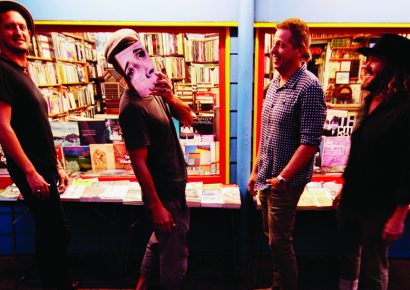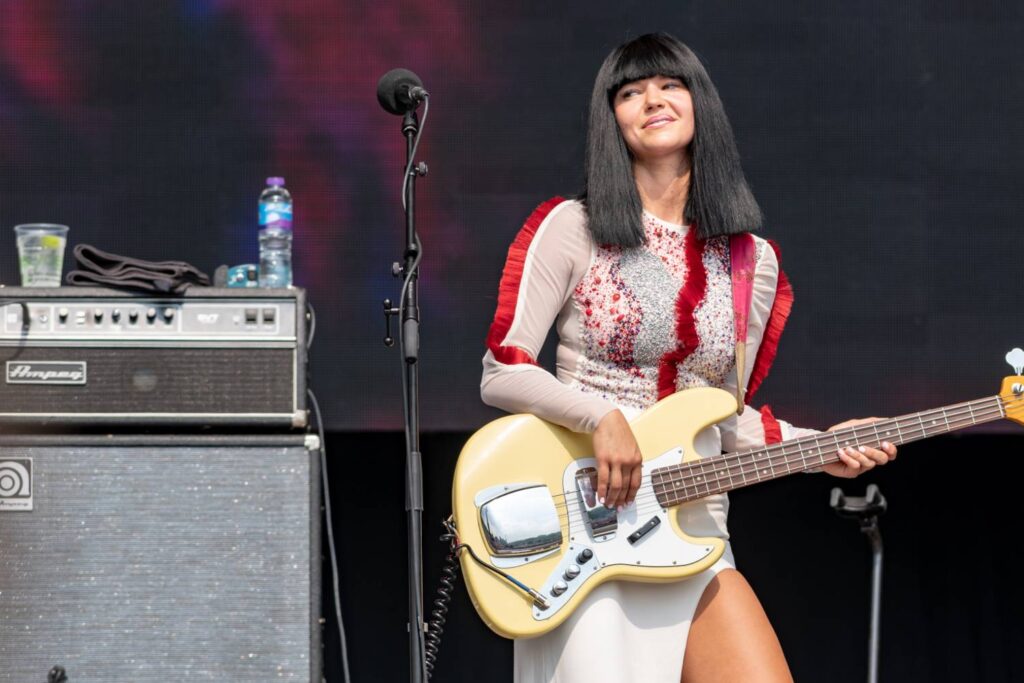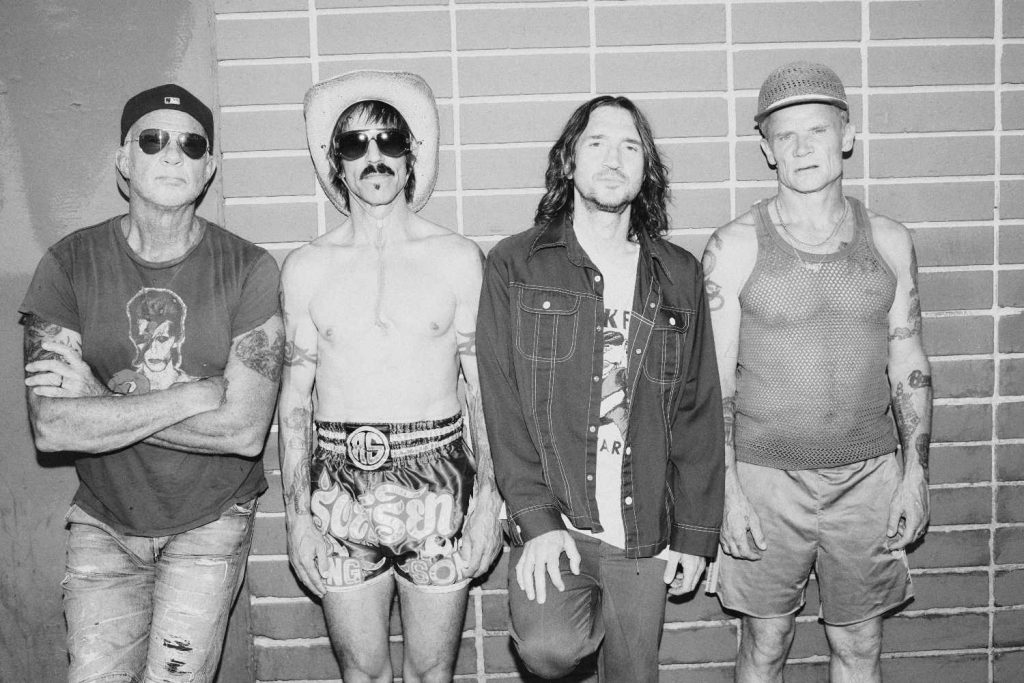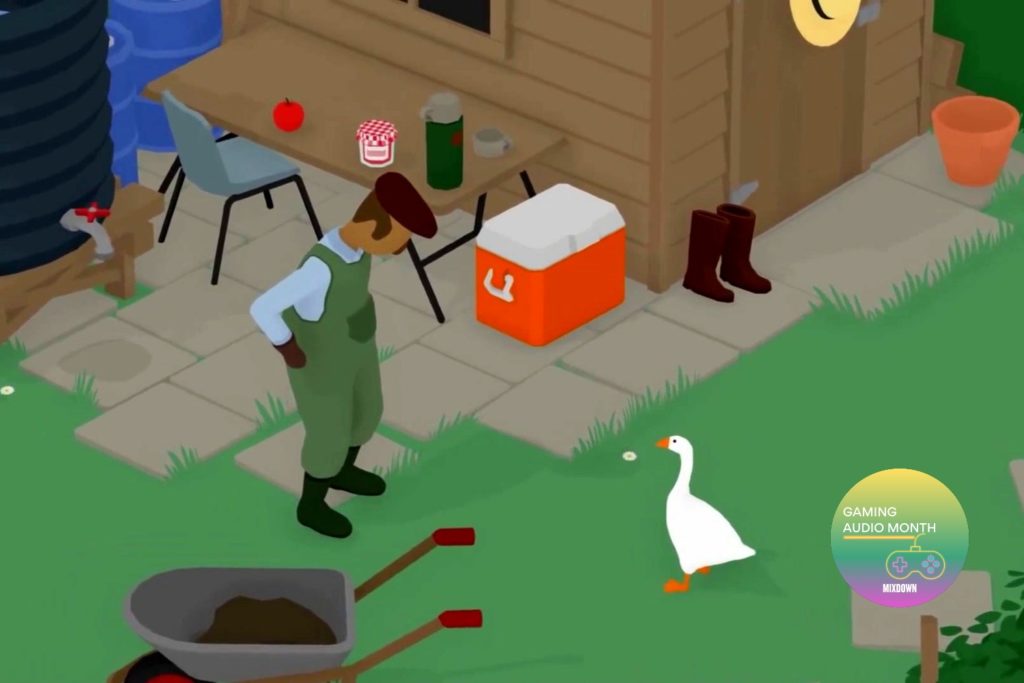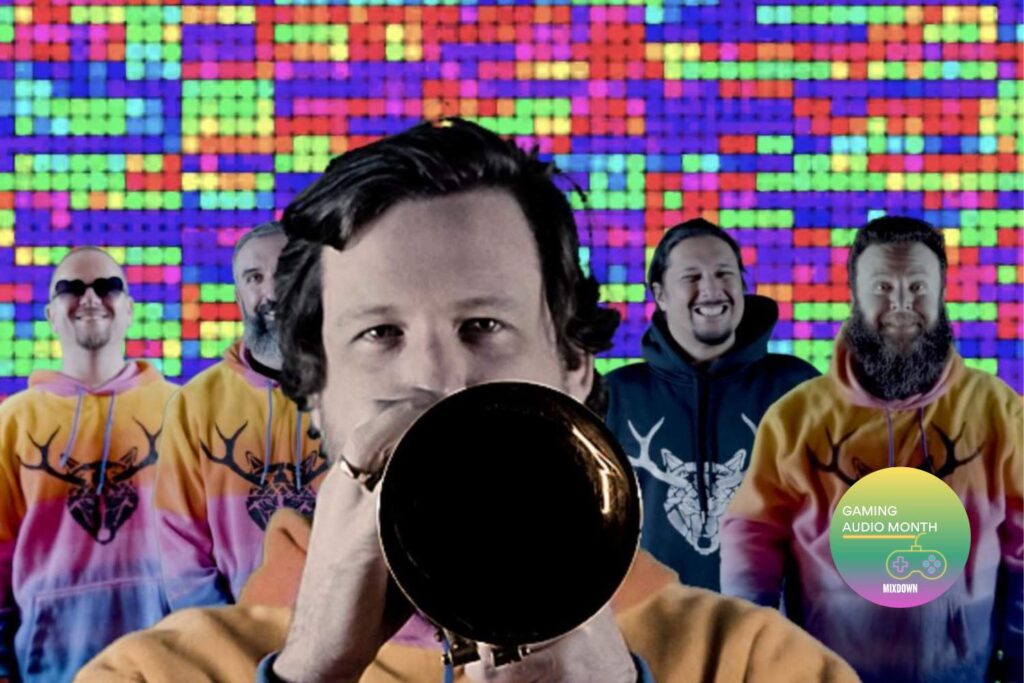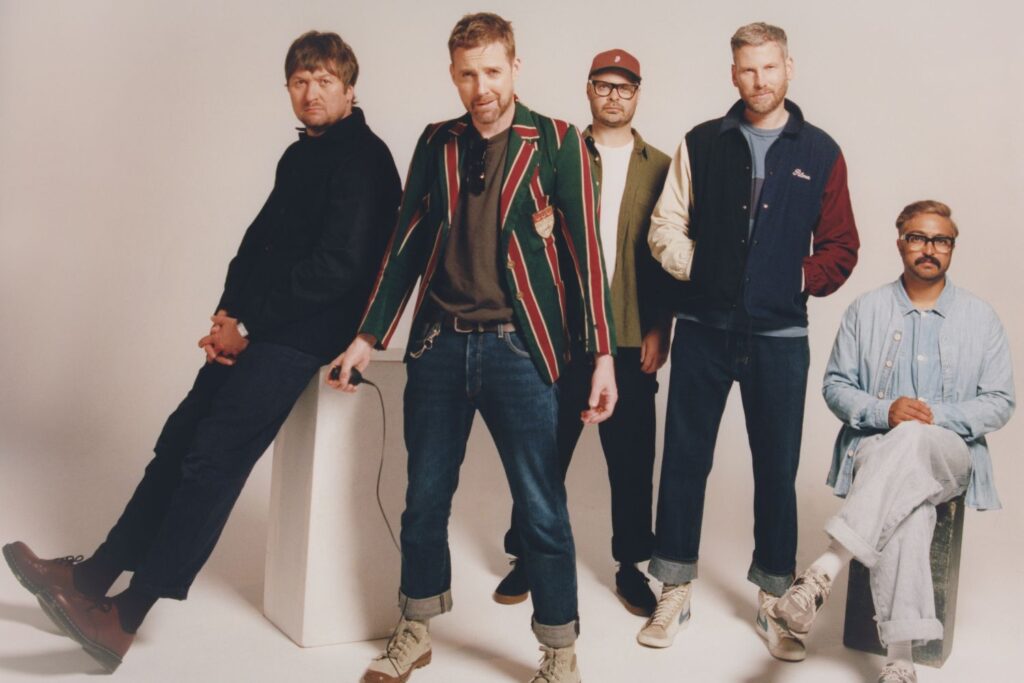How important is where you come from in informing your music?
I can’t imagine being born anyplace else, I feel very fortunate to have been born and grown up in Memphis. ‘Course the biggest reason was the music I was exposed to as a young boy, the gospel was irreplaceable, the classical that I got at home from my mum, and the Hammond organs that were all over town in the churches and the clubs. Especially the clubs influenced me, they made me who I am. I was too young to get in, but I could hear it from the street and I started to take Hammond organ lessons. Maybe that would have happened in Kansas City or Chicago, but I don’t think they would have had the white musicians that were studying r’n’b and blues like Memphis did. And I don’t think the neighborhoods would have converged in Chicago and New York like they did in Memphis. So, it was a great place to come from at that time.
Organ wasn’t your first instrument though.
I had a ukulele and an old tin drum but the first instrument that I played with other musicians was in fourth grade was the clarinet. All the clarinet places were taken and (so) I played oboe my first fourth and fifth grade, and then I got a guitar.
How many instruments do you play?
I never counted. I played the reed group pretty much. My first job at Stax records was on baritone saxophone. But then I went through high school and junior high school playing the brass instruments, mainly trombone, and a little bit of tuba.
But you’ll always be associated with the B3 Organ, what drew you towards that sound particularly?
Ray Charles. Heard him on the radio playing a Quincy Jones arrangement of ‘One Mint Julep’. And that was my moment. I thought ‘if I could do that with my life, I would be a happy man’. And that’s what happened.
Is it still one of your favourite types of organs to play?
It is. I have, let’s see, three Hammonds in my possession and I’ve had more. It’s just my go-to and I’ve had most training on that one than any other instrument. My piano teacher had a Hammond organ in her den, so she’s the first one that introduced to this, the first time I touched it was at her house. And she had me playing Bach on the Hammond B3. And I was just moved, physically moved, emotionally moved, by the sound of it.
Do you enjoy the more modern digital organs now as well?
I have a good relationship with Hammond. They made one to my specifications, and I’m still not sure to be honest with you. I have one that I love, but I still play the analogue.
How would you say your classical training early on influenced your playing?
I might have been stuck in a rut without it. Although I love the 12-bar blues, the classical and jazz, I think that’s what really enabled me to explore my horizons, express myself within the r’n’b format. I think there’s a lot of my classical influence in some of the arrangements that I did at Stax.
The sound of those arrangements and specifically Booker T. and the M.G.’s was quite a remarkable balance between four guys who were obviously highly skilled at their instruments, but there wasn’t any flashiness to it, the arrangements were all quite contained. Did that balance come about naturally, or was it a planned decision?
It was natural, but it was intentional. A lot of it came from Al Jackson, who was always (advising) us to keep it simple – it was a daily mantra almost, not to become too complicated and too sophisticated.
Would those arrangements typically start with you?
We’d go in the studio and Al would say ‘what you got Jones?’. Al would expect (me) to have something original when I walked in. That was my job, to have some type of seed, some type of original riff or chord changes or something, that was not usual.
Can you think of any particular examples of that happening?
‘Green Onions’. I got those changes in my mind in a music class, playing these changes on piano at my mum’s house. She had an old piano, and instead of playing one-four-five like we normally did every night, ‘Green Onions’ is one-three-four over and over again. But it’s still in the 12-bar blues framework that we always used, so it’s kinda unique, kind of a catchy lil’ chord pattern.
And did everyone contribute their own ideas?
Oh absolutely. Often Duck would follow my left hand for the bassline, which made the bass sound big. Cropper came up with his lines, especially like the one at the end of ‘Time is Tight’. He did that on a lot of songs – ‘Soul Man’, the guitar intro to that, and ‘Sitting on the Dock of the Bay’.
And yet I’ve heard Steve Cropper refer to you as being the real musician in the group.
Well he said that probably because I’m the one who, against all odds, sorted it out in a formal way, because I took conducting, orchestration, music theory and I had a formal music education starting from maybe about ten years old, and I could read and write.
You continued your studies at university even after the success of having a lot of hit records at Stax, which meant that sometimes you weren’t able to be present in all the sessions. For a lot of people that would have seemed like a dream job but you were obviously placing a lot of emphasis on improving yourself as a musician and gaining education. What was your mentality at that time?
It started as soon as I graduated from 12th grade, I went right to Indiana [University], September, 1962. I’d saved up $900. But here was the situation – I could hear music in my mind. I could hear a complete symphony in my mind or I could hear an arrangement, but I didn’t know how to write it down, I didn’t know the particulars of it. I wasn’t sure what I was hearing – a Fminor 9 chord or a F7 chord or a F diminished, or an F augmented, and where the notes fit on the staff. So I had to have all that sorted out, I had to be taught all that stuff. I just had to know it.
Do you have a preference for analogue or digital sounds?
These days you don’t have to compromise so much as you did maybe ten, 15 years ago because there’s so many plugins that you can use to simulate analogue that are good. It’s ironic because we started with scratchy records and the one channel mono analogue tape, and now 50 years later everyone wants to emulate that, with all the sophisticated equipment that we have.
You’re touring now as part of a Stax revue. What made you want to celebrate that legacy at this time?
I may be the last one standing who can do that, one of the last of the original ones. And it’s just great music, I love it, I don’t think I’ll ever get tired of it. We do songs that I participated on that thrilled me at the time, songs that I didn’t participate on that thrilled me, for instance ‘Knock On Wood’, ‘In the Midnight Hour’, ‘Sitting On Dock of the Bay’. And my songs – ‘Green Onions’; ‘Time is Tight’; ‘Hip Hug Her’. People tell me how the music makes them feel and what they get out of it, and it just means a lot to me to be able to bring that to them. It’s a nice exchange.
Speaking of live, what was it like being onstage with Otis Redding at Monterey Pop Festival [1967]?
That was a first, that was an original experience. Otis was nervous – you know, the world was changing then, and that was one of the crucial moments I think in the history of the world. Otis kept talking about being accepted by this group of people. He wasn’t sure about it at first, and the acceptance was so huge and so warm. I mean we were there in [laughs] tailored suits from Memphis and everyone else was in long hair. It was a white audience, that was part of it, and there should’ve been a big cultural difference but it just didn’t seem to matter.
Are you working on anything at the moment?
That’s the challenge, is to tour and to write and record and to write a book. The book has taken priority because I’ve got so old now and I’ve done so much. To look back on my life is really an experience I never expected like this. So I’m trying to get it all down on paper. I’m making that more important than making music right now ‘cos it’s that time when I have to make priorities and that’s really hard. But I need to do it.
Booker T. Jones will perform at Byron Bay Bluesfest 2017, which runs from Thursday April 13 – Monday April 17, with information available at bluesfest.com.au, as well as two sideshows in Melbourne and Sydney.
